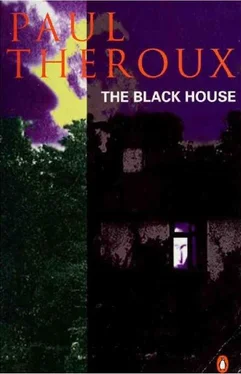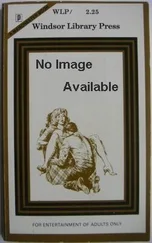Paul Theroux - The Black House
Здесь есть возможность читать онлайн «Paul Theroux - The Black House» весь текст электронной книги совершенно бесплатно (целиком полную версию без сокращений). В некоторых случаях можно слушать аудио, скачать через торрент в формате fb2 и присутствует краткое содержание. Год выпуска: 1996, Издательство: Penguin Books, Жанр: Современная проза, на английском языке. Описание произведения, (предисловие) а так же отзывы посетителей доступны на портале библиотеки ЛибКат.
- Название:The Black House
- Автор:
- Издательство:Penguin Books
- Жанр:
- Год:1996
- ISBN:нет данных
- Рейтинг книги:4 / 5. Голосов: 1
-
Избранное:Добавить в избранное
- Отзывы:
-
Ваша оценка:
- 80
- 1
- 2
- 3
- 4
- 5
The Black House: краткое содержание, описание и аннотация
Предлагаем к чтению аннотацию, описание, краткое содержание или предисловие (зависит от того, что написал сам автор книги «The Black House»). Если вы не нашли необходимую информацию о книге — напишите в комментариях, мы постараемся отыскать её.
The Black House — читать онлайн бесплатно полную книгу (весь текст) целиком
Ниже представлен текст книги, разбитый по страницам. Система сохранения места последней прочитанной страницы, позволяет с удобством читать онлайн бесплатно книгу «The Black House», без необходимости каждый раз заново искать на чём Вы остановились. Поставьте закладку, и сможете в любой момент перейти на страницу, на которой закончили чтение.
Интервал:
Закладка:
Paul Theroux
The Black House
For Blanche Gregory
‘Thus I; faltering forward,
Leaves around me falling,
Wind oozing thin through the thorn from norward,
And the woman calling.”
—Thomas Hardy, “The Voice”1
The Times, Tuesday November 9 The Bwamba
From Dr. A. B.W. Munday
Sir, It is to be regretted that your correspondent (“Tribal War in Western Uganda,” 25 Oct.) did not trouble himself to probe more deeply into the conflict between the Bwamba and Batoro peoples, and saw fit only to repeat the confused observations of a generation of misfit District Commissioners.
The wisdom of comparing the Bwamba to other quarrelsome African peoples is questionable; to publish this comparison is folly. “A repetition of the Ibo adventure,” he writes. On the contrary—colour is conceivably their only common denominator. This is not a great deal different from comparing an Englishman with, say, an Italian. An exercise in derision, but dangerous as well. A report such as his can be of no possible benefit in understanding the nature of the issues or the lapses for which both sides may be held accountable.
As it happens, I have recently returned from a long residence in Uganda and am presently engaged in writing a social history of the Bwamba. Without going into further detail, may one simply hope that when this study is published it will afford access to the sources of conflict and put paid to the notion that “civilized” society has nothing to learn even from so small and remote a people?
Yours faithfully,
Alfred M unday
Bowood House, Four Ashes,
Near Bridport, Dorset
Nov. 2.
2
The stillness of the country bedroom sealed their privacy and prompted them to continue the argument they had begun that morning on the train from Waterloo. But no sooner had he said to his wife, “Damn you”—saying it in the casual unemphatic way of the married person who has repeated it often without meaning it—than in the ensuing silence that had an unusual purr of safety, there was a human mutter against the wall. They were alarmed and disappointed —they were not alone, they could not explain that what had surely been overheard was simple exasperation. Then Mr. Flack was at the door, and Emma Munday at her open suitcase; and her husband placed himself across the room, at the window, pretending he had not meant anything serious.
“It’s so green,” said Alfred Munday, recovering his voice. He looked out the window. It was the “guest” wing of The Yew Tree. He and Emma were the only guests. He stopped himself from speaking the next thought that occurred to him, that it was the kind of open landscape—there, out of the English window—that might have held groups of grazing zebra, or a distant regatta of tall white egrets, or some swart-sniffing wildebeest.
It was silly, but his eye, used to Africa, alert for the remarkable or strange, would not be quieted. In some places visions were interchangeable for Munday, and the comfort of a familiar detail often inspired an absurdity: once, he had woken in a hotel room in Kampala, and, chilled by the roaring air conditioner, looked sleepily out at the gray lowering sky; for seconds he believed those woolly clouds were about to release a blizzard of snow. That was on the equator, at sea level. Now he looked again at the human curves on the shoulders of the Dorset hills and wondered at their emptiness. He said, “It’s as green as Africa.”
“You should know, sir.” That was Mr. Flack, the landlord of The Yew Tree. He said it as a friend, but he was positioned like a stranger, just outside the door of Munday’s room, in his overcoat, with his fists clenched at his sides.
“Should I indeed?”
“Seeing as how you’ve been down there.”
So Mr. Flack knew. Munday was cautioned and guardedly he said, “Quite.”
“I was there myself,” Mr. Flack went on. “During the last war. In the desert—I was at Tel el Kebir. Later on I was laid up in a hospital in Capetown. Malaria. That’s how I lost my teeth—they had to pull them all out. Part of the cure. When my teeth were gone I was right as ninepence.” He worked his mouth reflectively for a moment. “Had some blacks in the regiment, too.”
Munday became interested. “Africans?”
“Hindus,” said Mr. Flack. “Beautiful little chaps they were. Tremendous fighters. They had these dirty great kukris’' He blinked and looked at Emma to explain. “That’s a type of knife, sharp as anything, and they knew how to use them. Oh, we had some times.” Munday had turned to the window when Mr. Flack said, “Hindus.” He said, “I didn’t go in—I was getting my doctorate.” He felt an explanation was required: he had no war stories. “In any case I have a bad heart.”
“My ticker was none too good,” said Mr. Flack, and it sounded to Munday like a rebuke. “I had these dizzy spells and went all cold in me hands and feet. They gave me six months to live.”
“You look fine to me,” said Munday.
“That was thirty years ago,” said Mr. Flack. He leaned forward into the doorway to confide, “You’re looking at a man of seventy!”
“I don’t believe it,” said Munday. He spoke what he felt; Mr. Flack’s round figures sounded like lies. But Munday took a closer look and changed his mind.
“I’d be a lot stronger if I hadn’t come down with double pneumonia during that hard winter—that was ’sixty-three. We were snowed up here for six weeks— no bread, no papers, and most of the cattle died. It was over the top of the pillar box. I’ll show you the snapshots some time. That’s what gave me my chest.” He coughed; a rich deep wheeze traveled down his throat and slowed and thinned to a whistle. “I hope you and the missus like walks. There’s some lovely walks here. And masses of history.”
“We’re quite looking forward to the walks,” said Emma.
“I’ll lend you my maps,” said Mr. Flack. “I was a great walker once, but I don’t do much of it these days what with the pub and my chest. And my missus has arthritis. Still.”
Hearing the whiffling accent, Munday said with encouragement, “Why, you’re a Londoner.”
“Born and bred in Tulse Hill,” said Mr. Flack, pronouncing it “Towse Hew.”
“I had a pub there for years, The Anchor, near the station. That’s going back a bit—twenty years ago.”
Munday said, “What made you choose Dorset?”
“Same reason as you, I fancy.”
“And what reason is that?”
“Retirement, sort of. This is a good place for a retired gent.”
“Of course,” said Munday, but he was looking out the window again, past the thick black-green trees that gave the inn its name. “That’s our house, isn’t it?” Mr. Flack excused himself and entered the room.' He peered over Munday’s shoulder and said, “That’s the roof. Any idea when you’ll be moving in?”
“Just as soon as our sea freight arrives. It’s already in London, so it’s just a matter of getting it off the dock and down here in a lorry.”
“Could take ages,” Mr. Flack said gravely. “I can tell you’ve been away for a little while. You don’t know these dockers and their go-slows.”
“Well hope for the best,” said Munday. “In the meantime we’re counting on your hospitality.”
“It’s so kind of you to put us up,” said Emma. “We were told you don’t take many lodgers.”
“Not these days,” said Mr. Flack. “But years ago The Yew Tree was packed out with guests. Came from all over. We did lunches, cream teas, the lot. After old Mrs. Clissold died—she was a tower of strength—there was no one to clean. My missus can’t manage the stairs, you see. It’s her legs. Still, you’re very welcome to stay as long as you like. You’ll find it cheap and cheerful. The bar opens at six. Come down and have a drink if you’re free.”
Читать дальшеИнтервал:
Закладка:
Похожие книги на «The Black House»
Представляем Вашему вниманию похожие книги на «The Black House» списком для выбора. Мы отобрали схожую по названию и смыслу литературу в надежде предоставить читателям больше вариантов отыскать новые, интересные, ещё непрочитанные произведения.
Обсуждение, отзывы о книге «The Black House» и просто собственные мнения читателей. Оставьте ваши комментарии, напишите, что Вы думаете о произведении, его смысле или главных героях. Укажите что конкретно понравилось, а что нет, и почему Вы так считаете.












